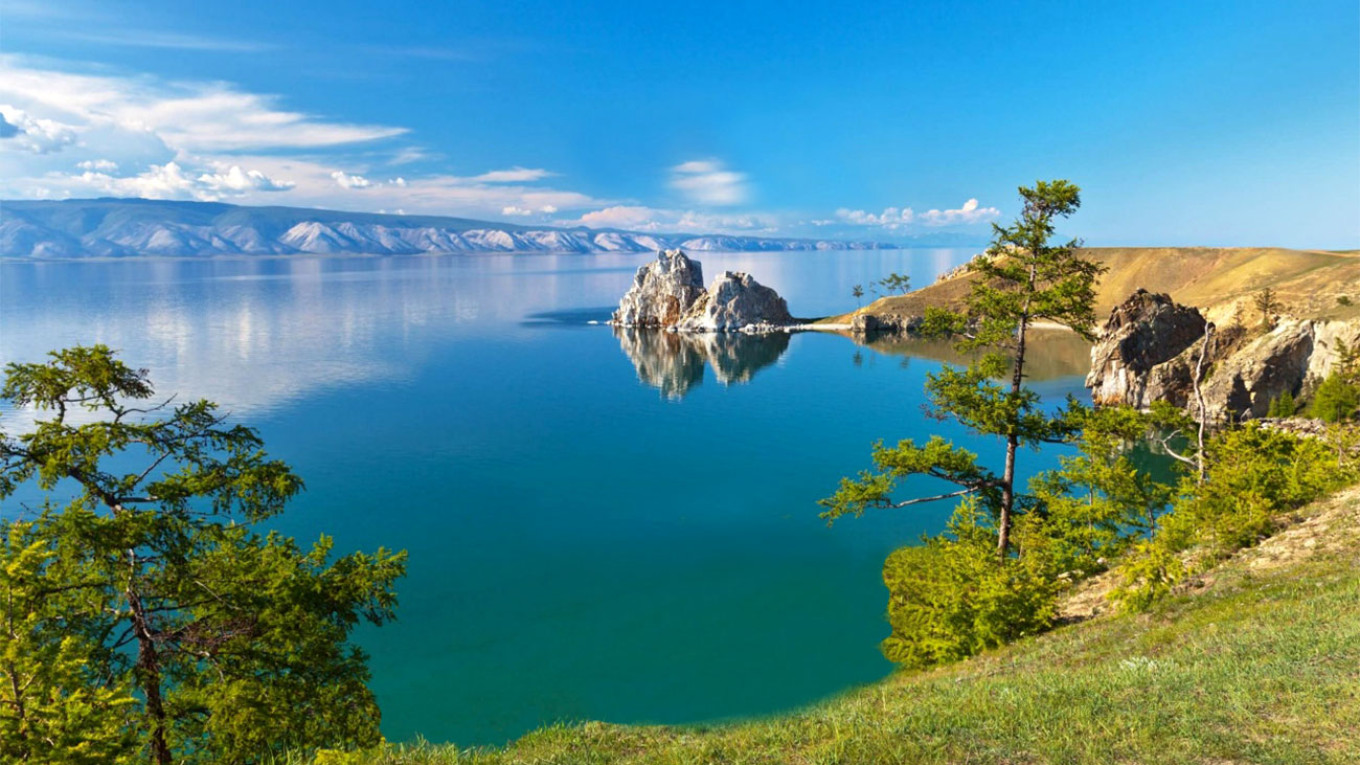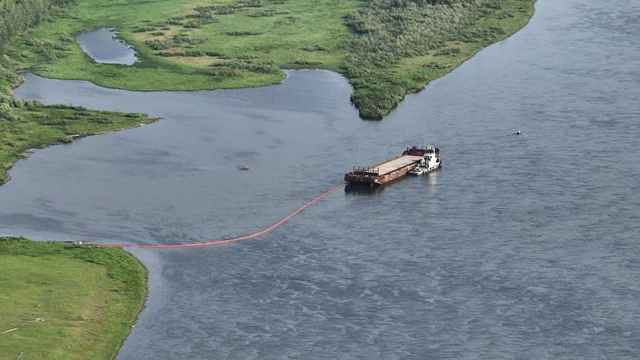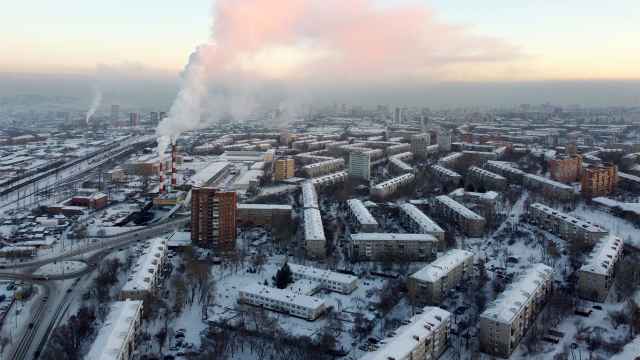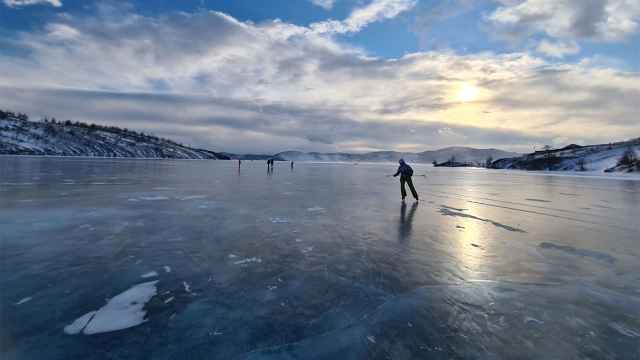A controversial new bill seeking to ease logging restrictions along the shores of Lake Baikal could deal irreversible damage to the Siberian lake’s unique ecosystem, experts and activists have told The Moscow Times.
Baikal was declared a UNESCO World Heritage site in 1996 and recognized as the planet’s most outstanding example of a freshwater ecosystem. The world’s largest freshwater lake by volume, Baikal is both sacred to the indigenous populations living around it and a popular eco-tourism destination — but its ecosystem has faced rising threats in recent years.
Russia’s lower house of parliament last month approved amendments to the country’s law on the protection of Lake Baikal in their first reading, which lawmakers say are aimed at developing basic infrastructure in the many remote towns and villages on the lake.
But ecologists who spoke with The Moscow Times believe the amendments would pave the way for mass commercial wood harvesting and the building of outsized tourism infrastructure.
“I think the amendments are made for the development of large tourist projects that…are pointless and loss-making,” said Kristian Rinchinov, an environmental campaigner working with indigenous activists and local nonprofits in the republic of Buryatia.
“People come to Baikal for the wildlands and its unique culture, they don’t want to see a big hotel and a concrete embankment there. The unique territory that attracts people in the first place is being destroyed,” Rinchinov told The Moscow Times.
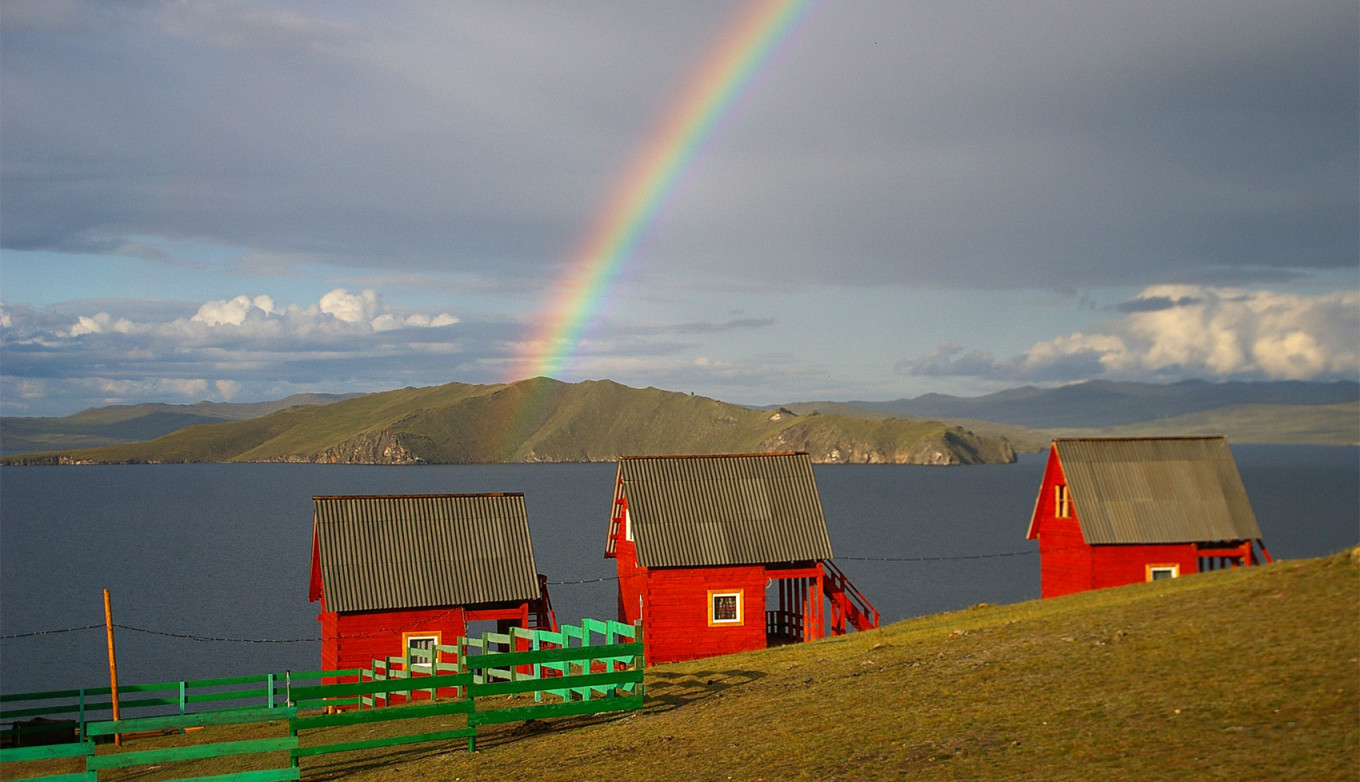
If signed into law, the bill would allow sanitary logging — a forestry management method aimed at minimizing the impact of insect infestation, forest fires and other natural disturbances — on as many as 75 plots of land with a total area of 762 hectares, which Russian lawmakers say will be used for the construction of roads, sewage treatment plants, utility infrastructure, cafes, restaurants and public toilets.
One of the businesses that could reap large benefits from the bill is Sable Mountain, a ski resort owned by tycoon Oleg Deripaska that stands adjacent to the largest area of forest where logging will be permitted, according to an investigation by the environmental news outlet Kedr Media.
Observers believe the cleared areas could be used to expand the facility and perhaps build an additional ski slope, though the press service of En+ Tourism Infrastructures, the resort’s on-paper owner, denied these plans.
Kedr identified the bill’s coauthor and its most forthright backer, State Duma deputy Alexander Yakubovsky, as another potential beneficiary of the bill.
Last year, just two weeks after Greenpeace Russia sounded the alarm about the catastrophic consequences the proposed law would have for Baikal, Yakubovsky sought to silence the organization and called on Russia’s Justice Ministry to investigate it for compliance with Russia’s “foreign agent” law.
Though Greenpeace avoided designation as a “foreign agent,” Russian authorities outlawed the group entirely in May with an “undesirable” label — a move also set in motion by Yakubovsky.
According to Kedr’s investigation, Yakubovsky could have a personal motivation in getting the bill passed. His wife Olga Yakubovskaya is the owner of the Baikal Construction and Development Group, a real estate development company that could reap large profits from construction projects in freshly deforested areas.
The controversial law has also received the backing of Irkutsk region Governor Igor Kobzev and the head of Buryatia Alexey Tsydenov.
“We can’t cut down the forest, we can’t catch omul [a rare fish native to Baikal], we can’t do tourism. How are we supposed to live?” Tsydenov said last month at a government-backed rally in support of the law that saw dozens of people gather in Buryatia’s regional capital of Ulan-Ude.
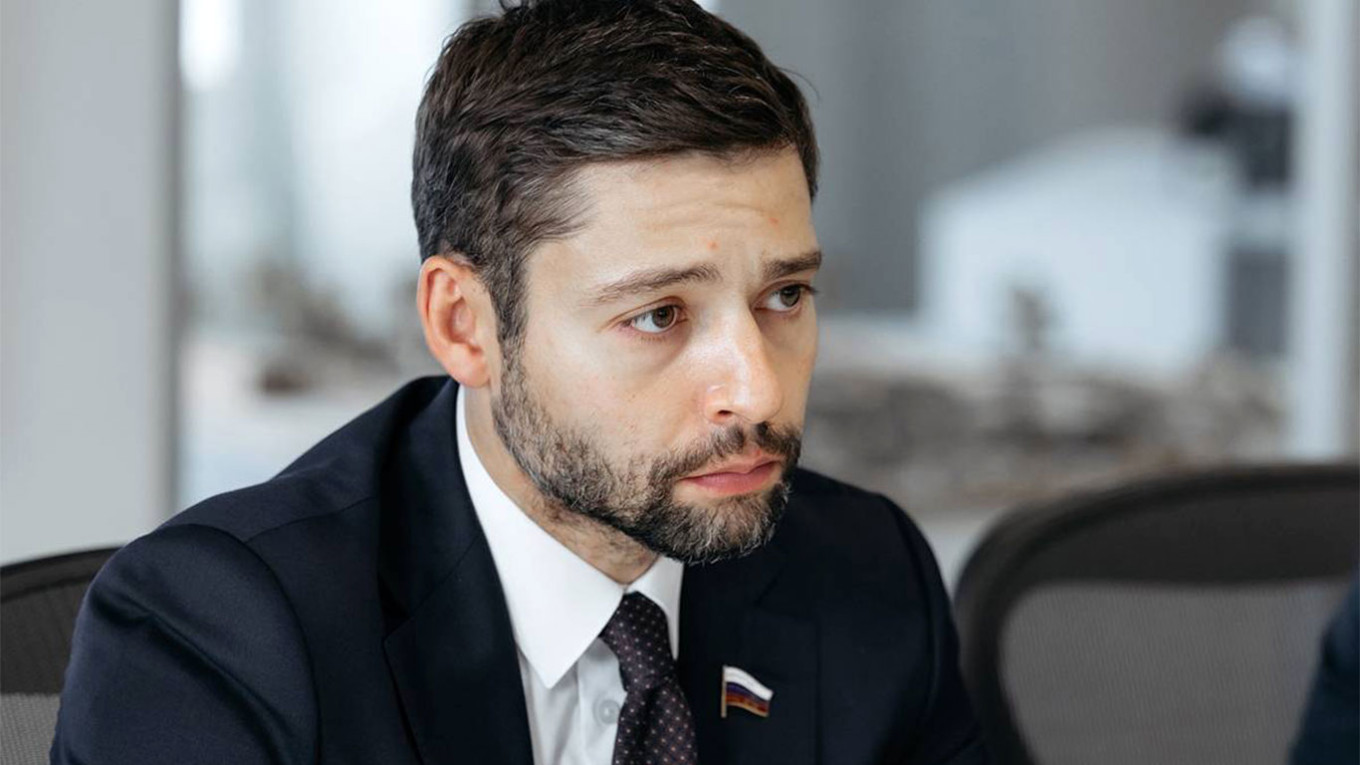
Many of the more than 80 villages on the shores of Lake Baikal indeed suffer from acute lack of basic infrastructure such as adequately paved roads and sewage systems.
“Everyone who has been to Baikal knows that logging of this scale isn’t needed to develop the infrastructure,” said Rinchinov, noting that there is already enough abandoned agricultural land and other deserted areas to build up local infrastructure.
“Forests around Baikal are very important not just because of their beauty, but because these ecosystems provide water for the great lake,” he added.
The shores of Lake Baikal are the native lands of the indigenous Buryat, Evenk, Khamnigan and Tofa peoples. Most of them have a strong spiritual bond with the lake and its surroundings, while Baikal’s forests also host a number of sacred objects such as oboo shrines — the sites of worship of local spirits found in an array of Turko-Mongol cultures.
“The primeval territory itself is a part of these peoples’ worldview,” said Rinchinov. “The destruction of natural landscapes…is essentially also a violation of the rights of indigenous peoples, but, unfortunately, [these rights are] not inscribed in the Russian law.”
Among the positive features of the law touted by its backers are provisions for building landslide mitigation structures in cleared areas and “compensating” for each felled tree by planting five others in its place.
“The area around Baikal has grasslands, the slopes of the steppe, forests and territories developed by humans…Where in this equation is the room to plant one tree for every five? Does it mean planting trees in the steppe, or what?” said environmental activist Yevgeny Simonov, a coordinator of the Rivers Without Boundaries international coalition.
Simonov said that the proposal for landslide mitigation structures — if erected despite widespread corruption — is the only positive thing outlined in the bill.
Yet not all experts said they see the proposed changes to the law on Lake Baikal's protection as ultimately evil.
“Of course, if you would ask me, I would suggest making the entirety of Baikal a protected area…but I understand that this is simply impossible,” said Alexander Sofronov, a senior researcher at the V.B. Sochava Institute of Geography of the Siberian branch of the Russian Academy of Science.
“If we are looking for a balance between developing tourism…and protecting Lake Baikal, then we will have to sacrifice some elements of the lake’s ecosystem,” Sofronov told The Moscow Times.
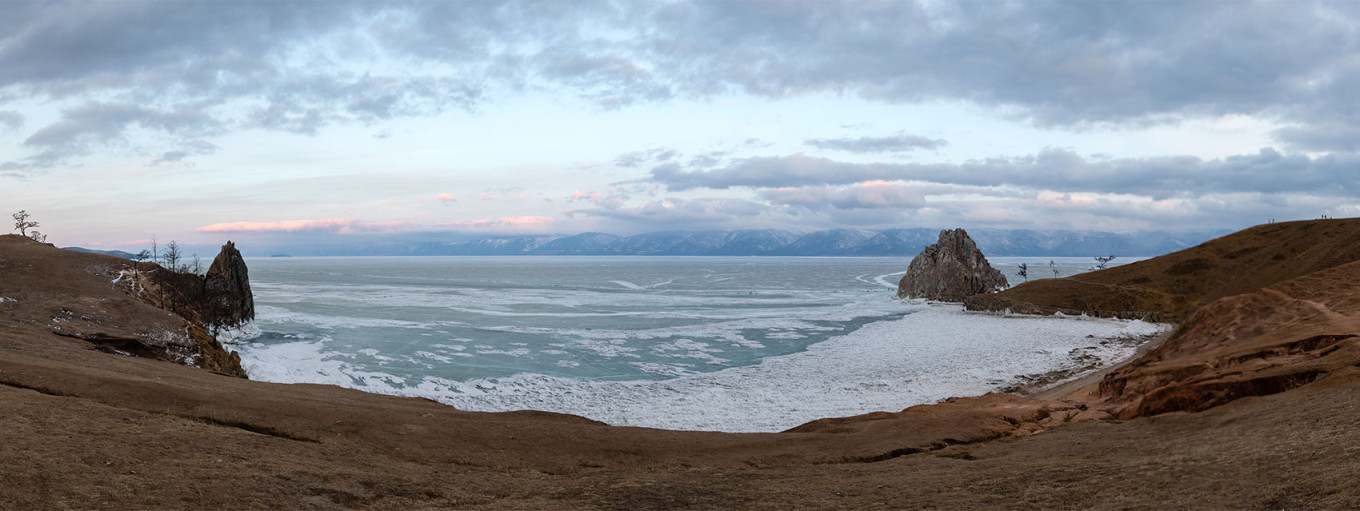
Sofronov believes that the arrival of large investors, who have the interest and the means to take appropriate care of shore areas, could, on the contrary, have a positive effect on Baikal.
“Right now, locals who live and vacation on the shores are treating the environment in a questionable manner,” said Sofronov.
Though most experts expected the bill to swiftly go through its second and third readings in the Duma last month, lawmakers unexpectedly chose to postpone these votes until the fall and hold public hearings in July and August instead.
“We plan to conduct meetings with residents of Irkutsk region and the republic of Buryatia and discuss the legal proposals,” said Dmitry Kobylkin, chairman of the State Duma’s Ecological Committee.
This is the second — though perhaps temporary — victory of environmental activists, scientists and local residents opposing the changes to Baikal’s legal environmental protections.
When initially introduced last year, the original draft law threatened as much as 68% of Baikal’s forest areas, allowing sanitary logging to take place until 2030.
“This [version of the] law is a sad triumph of compromise. It [now] has the list of specific objects where harmful deeds can be done,” expert Simonov told The Moscow Times.
Simonov said he believes that public hearings on the law are bound to be a nominal procedure, as the government has so far failed to provide required expert assessments and other documents detailing the proposed changes.
“Unfortunately, this is just a cop-out not backed by valid procedures,” said Simonov.
A Message from The Moscow Times:
Dear readers,
We are facing unprecedented challenges. Russia's Prosecutor General's Office has designated The Moscow Times as an "undesirable" organization, criminalizing our work and putting our staff at risk of prosecution. This follows our earlier unjust labeling as a "foreign agent."
These actions are direct attempts to silence independent journalism in Russia. The authorities claim our work "discredits the decisions of the Russian leadership." We see things differently: we strive to provide accurate, unbiased reporting on Russia.
We, the journalists of The Moscow Times, refuse to be silenced. But to continue our work, we need your help.
Your support, no matter how small, makes a world of difference. If you can, please support us monthly starting from just $2. It's quick to set up, and every contribution makes a significant impact.
By supporting The Moscow Times, you're defending open, independent journalism in the face of repression. Thank you for standing with us.
Remind me later.



